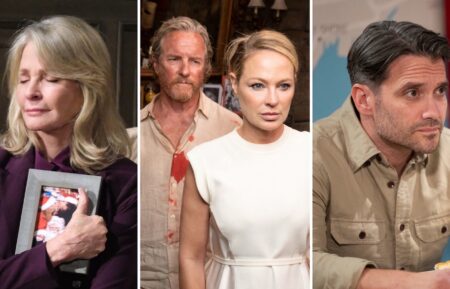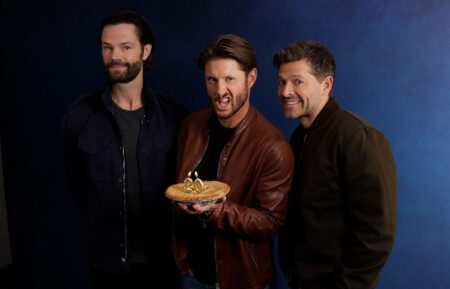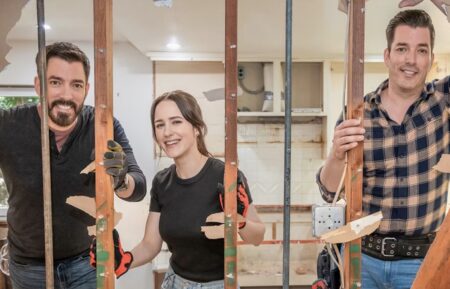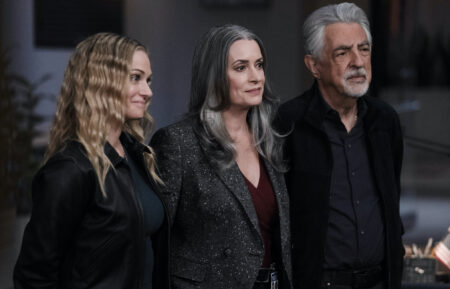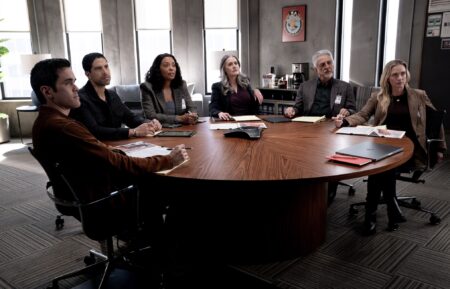Robin Roberts Reflects on Hurricane Katrina (and Crying On National TV)
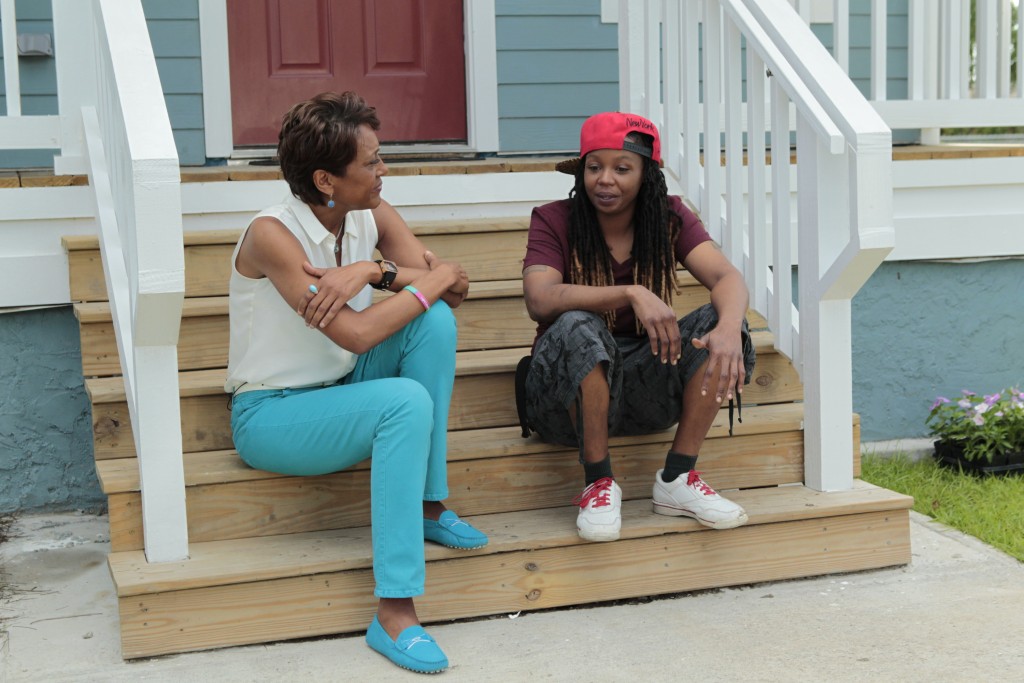
When Robin Roberts’s eyes swelled with tears as she reported from the Gulf Coast the morning after Hurricane Katrina hit in August 2005, she thought her career was over. For the Good Morning America co-anchor, the tragedy was personal: She had been trying unsuccessfully to reach her own family in Mississippi. But after she was reunited with them, Roberts made it to the location set just minutes before going live.
But that raw display of emotion didn’t leave Roberts with a pink slip—instead, her humanity became an unforgettable moment amid one of the nation’s deadliest natural disasters. Now, a decade after the storm that caused an estimated $108 billion in damages and took at least 1,833 lives, Roberts is hosting Katrina: 10 Years After the Storm. We caught up with Roberts to discuss her connections to Katrina and know what to expect from the new special.
What do you remember about the day Katrina hit?
We knew that it was going to be a powerful storm. We had been following it, and I remember [in] the morning, I was talking to my family on the phone. I was hoping that my family would evacuate the night before, but my mother had health issues and was unable to, so my sister was going to go and stay with her with her daughters. I lost communication with them, but I still tried to do my job as co-anchor with Charlie Gibson and Diane Sawyer. We could only see what the camera would show us, and it seemed like, “Oh, it’s not quite as bad as we had predicted.” Later that [day], I had gone to a lunch, and I was in an area where I couldn’t get cell service. I came out of that lunch [in the] early afternoon, and there were calls from ABC executives saying, “You gotta get down there, it’s much worse than we thought.” I had been trying to get in touch with my family and still couldn’t.
So you went down there.
We were only able to get as close as Lafayette, Louisiana, the night of the storm, and we drove all night long into the morning to get to that location. Being from that area, unlike other people who were in the vehicle with me, I knew what was supposed to be there and what was missing. I can’t describe to you the things that we saw driving from Lafayette to the Mississippi Gulf Coast. We finally got there in the wee hours and I told my producer, “Look, I’m not going on the air until I find my family. So you set up to do the live shot and I’m going to try to find my family. If I can get back and report, I will, but if not, I’m sorry.” [Then] I was able to, with the assistance of a police officer, find my family. The home was not in the best shape, but it was okay, better than most. But my family was fine, [so] I got back with minutes to spare to go on the air.
How did that feel?
What I remember most is just the uncertainty. I know the reason why I broke down on television like that was because I was grateful that I found my family, but I was thinking, “Oh my gosh, many people are tuning in and they are feeling just like I felt, not knowing [if their] loved ones are OK.” It was surreal, looking around, especially as it became morning, and seeing the mess, destruction everywhere.
And you were relatively fresh as a GMA co-anchor then, right?
Oh my gosh, I had just been the co-anchor [since April]. I was very excited about the promotion and to work with Charlie Gibson and Diane Sawyer, and that’s why when I was sent there, I was fine at first when reporting. I just reported the facts. I reported what I had seen and what was going on in New Orleans. I wrapped up the report. I was very professional and I said, “Back to you, Charlie.”And he said, “Well, Robin, when you left here, you didn’t know about your family. Were you able to find them?” The moment he said that and made it about my family, that’s when I broke down. I’ll tell you, to me, it was a drop-the-mic moment, going, “I am not going to have a job. I’ve just been named the co-anchor of Good Morning America with Charlie and Diane, and here I am, crying on live TV.” I thought that was it. But I was very grateful that people responded positively. It was a real moment for me personally and professionally [learning to] just be your authentic self. Just be authentic, and it resonates with people.
Did that shape your experience at GMA?
Yeah, I think it really did. That was 2005. In 2007, I was diagnosed with breast cancer and shared that, and I’m not sure I would have because I would have thought, “No, you don’t do that.” But because I was so real in what was happening with Katrina and how I felt about that, I felt that I could share that with people. As my mother always said, “Make your mess your message.” What you’re going through—chances are someone else is going through it [too], and you have a platform to be able to help bring about change. And I really think it did shape how I felt about being the co-anchor of Good Morning America.
So what kind of stories are you going to be telling in the new special?
We have to remind people what it was like 10 years ago. We have some rare footage and some footage that has not been seen. In particular, a gentleman from the Mississippi Gulf Coast got into a boat that’s only supposed to be able to seat five people, and it was overflowing. Highway 90 was like a river, and you see him in his boat, collecting people, finding somebody who was trapped in a house, and then docking the boat, if you will, on the third floor of a motel. [But] it’s really about the progress that has been made. There’s this one woman, Syrena in New Orleans, who was 15 at the time of the storm and was plucked off of a rooftop and was in Houston for a time, where a lot of these evacuees were sent. She thought her life was over and came back to New Orleans and got into this great program with John Besh, a fabulous chef.
You’ve got some famous guests appearing on the special, including New Orleans Saints quarterback Drew Bees. Harry Connick, Jr also is involved—how so?
I couldn’t believe it. I mean, come on, he’s on another network! You’re not supposed to do that. But that’s the beauty of this. He put aside everything. He is, like I am, from that area. He is so grateful for his upbringing there and the musicians who helped him. So to be there in Musicians’ Village with Harry Connick, Jr and hearing him play the piano as these young kids, who are part of a community center that was built after the storm, sing “When the Saints Come Marching In”—talk about the real deal.
What do you think that people don’t realize about the aftermath of Katrina and, ultimately, what is it that you hope people get out of the special?
What I think is great about the American public is that when there’s a disaster, be it Katrina or tornadoes in the heartland, immediately there’s response. Immediately people are donating their time, their money, their prayers. But then they go back to their lives. You can’t fault them for that. They gotta go back to their lives. I want to thank them because that early response helped in a great way, but people are still picking up their lives down there on the coast. We can’t just go onto the next disaster and forget those who have gone through life-altering situations. I think it’s very important for people to know it’s a work in progress. That, yes, progress has been made. [But] it’s an unfolding story, and there are still many chapters to be written.
Katrina: 10 Years After the Storm, Sunday, August 23, 10/9c, ABC


